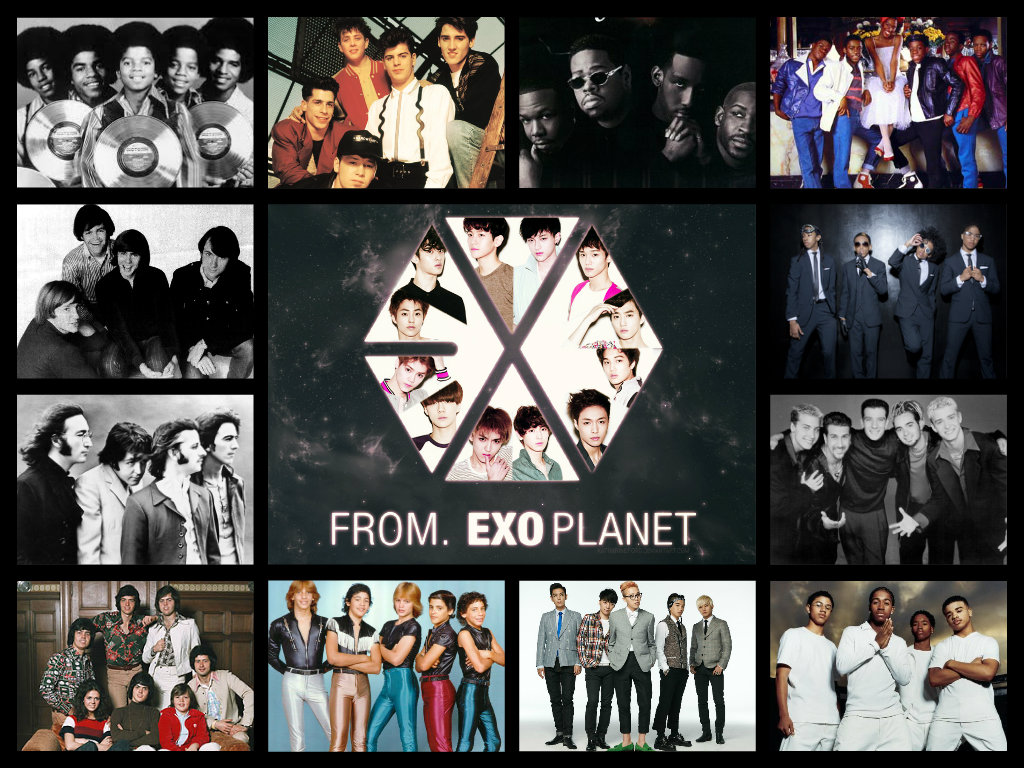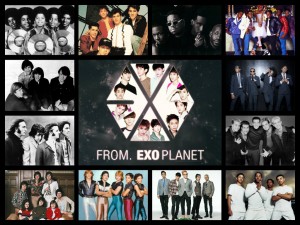

Every generation of women has gone through “that phase” when they’ve been hopelessly in love with “that guy”, right? You know, that guy with the huge Afro that your mom was in love with? No, not your dad. The lead singer of that boy band that used to be popular!
I’ve been a huge fan of boy bands since my parents first showed me The Jackson 5 performing on a rerun of Soul Train. I remember being captivated by the choreography and humming the lyrics to “Dancing Machine” for days afterwards.
The very first concert I ever went to was for the boy band Mindless Behavior. I was ecstatic when my sister and I were allowed backstage to meet the group and I was able to stand next to my favorite member, Princeton. While it was only two years ago, one can’t help but wonder why there are so little groups like that left.
What happened to boy bands?
Boy bands originated in the 19th century as barbershop quartets: groups of four males who sang sentimental songs in a four-part harmony. The purpose of such groups was to sing songs with lyrics that are easy to understand and sing along to.
These barbershop quartets eventually evolved into boy bands. However, their purpose did not change much.
The rise of the modern boy band began in the 1960s. Groups like The Jackson 5, The Beatles, The Osmonds and The Monkees set a precedent for the generations of aspiring young artists to come.
In the ‘70s and ‘80s there was New Edition, New Kids on the Block and Menudo. In the ‘90s there was Boyz II Men, *N SYNC and B2K. But there seemed to be a horrible trend with most of these groups: the supposed lead singer of the group ended up going solo while everyone else faded into practically non-existence.
Michael Jackson, Justin Timberlake, Omarion and Bobby Brown were all products of the pop industry, and record labels quickly took notice.
The ‘90s and the early 2000s were the height of boy band popularity. There were new groups debuting within weeks of each other, most of which became one-hit wonders.
Around 2005, however, the trend suddenly came to a crashing halt. With the sudden disbandment of *N SYNC in 2002 and B2K in 2005, there weren’t any more popular boy bands left.
Soon, the term “boy band” in itself became offensive, and groups started requesting to be called “male vocal groups.” It even caused the disbandment of a popular band of brothers — The Moffatts.
Boy bands became the butt of many jokes. Parody groups formed everywhere from Conan O’Brien’s Dudez-a-Plenti to MTV’s 2gether.
One thing that has brought many boy bands under fire is the emphasis put on their appearance instead of their music. Some of the groups assign personalities to each member, such as “the baby”, “the bad boy” and “the pretty boy” — almost like male versions of the Spice Girls.
The distinction in personality adds a familiar element to the group. They appeal to teenage girls, like myself, because it allows you to pick a “bias.” Your bias in the group is ultimately your favorite member; for example, one of the more popular biases in The Jackson 5 was Michael Jackson.
Recently, record labels have been trying desperately to bring the lost art form back to life.
In the United States, boy bands like Mindless Behavior, Big Time Rush and The Jonas Brothers have seen mild success. The United Kingdom has brought about One Direction, The Wanted, and JLS. But while each of these groups have achieved popularity, they are still being overshadowed by an array of talented solo artists.
So that leaves desperate fangirls, like myself, to find their fix somewhere else: Asia.
In Asian countries, specifically Korea and Japan, girl groups and boy bands make up the majority instead of the minority. Just like America in the early 2000s, groups are debuting regularly and showing no signs of letting up.
Needless to say, they haven’t evolved much from the days of the barbershop quartets.
As record labels scramble to come up with a concept or distinguishing factor to make their group stand above the rest, oftentimes it comes off as forced, cliche or just downright corny.
Take popular rookie group EXO, for example. EXO is a twelve member boy band signed to prominent Korean label SM Entertainment. They are split into two groups, EXO-M and EXO-K. They perform the same songs translated into Mandarin and Korean. They are all from EXO Planet and each member represents a different super power.
Aside from the fact that that story sounds like it belongs in a children’s television show, it also has almost nothing to do with what we really care about: the music.
Korean record labels have taken the need to control their boy band’s image to an entirely new level. Instead of just keeping a tight grip on how the public receives them, they also choose where they live and when they can date, if ever.
I, personally, am a true boy band fanatic. From the hair to the catchy, meaningless lyrics to the multiple levels of cuteness, I can’t get enough. I often find myself attempting to mimic the choreography from the outrageous music videos.
Unfortunately, however, it seems almost impossible for them to rid themselves of the negative connotation that comes with the term.